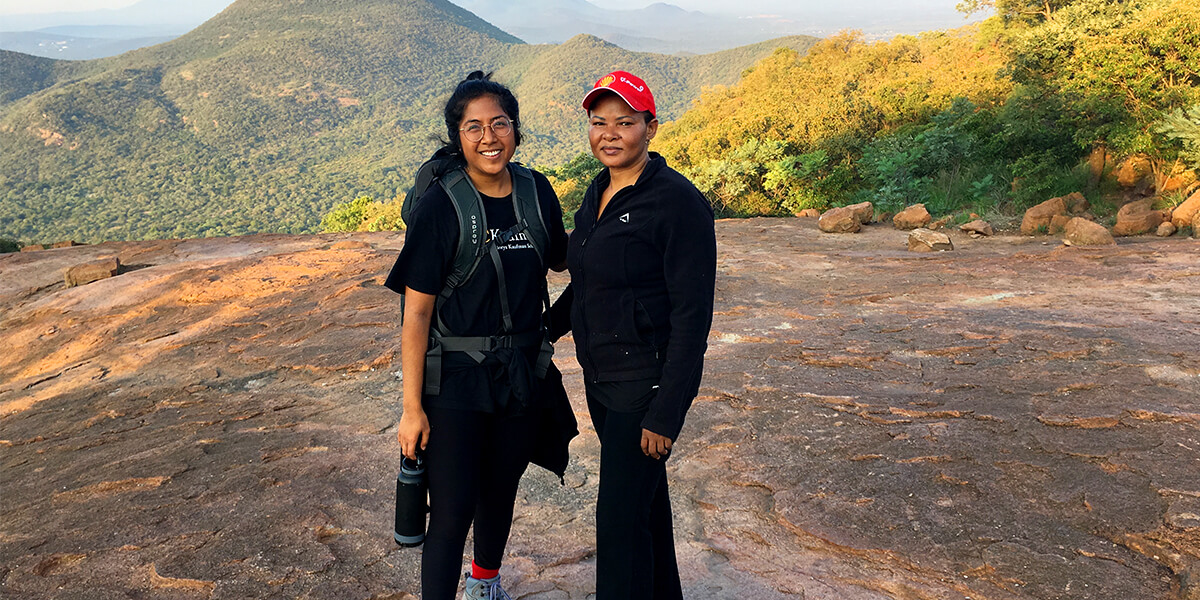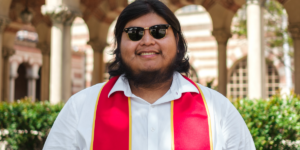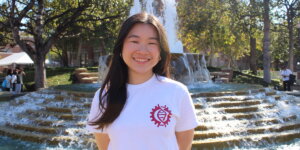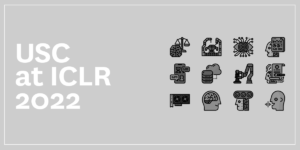
Sabrina Kiamilev (left) hiking with her host mom, Maggie, in Botswana, where she is studying computer science and learning traditional dance. Photo provided by Sabrina Kiamilev.
“My whole undergrad, I was either programming or dancing,” said Sabrina Kiamilev, who graduates this week with a degree in computer science.
Since January, Kiamilev has been pursuing both passions in Gabarone, Botswana in Southern Africa where she is studying computer science at the University of Botswana by day and learning traditional Setswana dance by night.
Kiamilev is the first student to travel to Botswana with the Council on International Education Exchange (CIEE) program offered by the USC Viterbi School of Engineering, which gives participants the opportunity to live with a host family while studying and exploring the region.
“It’s been a roller coaster, but also a really interesting experience—the culture is beautiful and the food is amazing,” said Delaware native Kiamilev.
“I’ve been backpacking in Nata, where elephants just roam the highways, which was incredible. Living with a family also opened a new window to the culture—if I stayed in a dorm, I’d still be stuck in my American way of life.”
Cultural roots
Born to a Russian father and Indonesian mother, Kiamilev is no stranger to adventure: during her senior high school year, she lived and studied in Russia with the National Security Language Initiative for Youth.
“I love languages, which is why I like computer science and programming languages—I also see dance as a physical language,” said Kiamilev, who is minoring in Russian at USC.
While taking electives at USC’s Kaufmann School of Dance, Kiamilev learned about the cultural and historical roots of hip hop and African dance and formed a “deep fascination” with Southern Africa.
It fueled her wanderlust, and when she saw the CIEE option on the Viterbi website, she jumped at the chance to apply. Now, living in Bostwana, she is learning a traditional dance called tsutsube with a local dance club.
“It’s very different from other dances of the African diaspora that I’ve encountered since they don’t use drums to keep the rhythm,” said Kiamilev.
“It’s very polyrhythmic because you’re singing to one beat and clapping to another beat. It’s so difficult—like patting your head and rubbing your stomach at the same time.”
Breaking through
While Kiamilev has been dancing for as long as she can remember—first ballet and then hip hop—the same didn’t go for computer science.
“My dad is a professor of electrical and computer engineering, so it’s always been around me but I was never actually immersed in it,” said Kiamilev. “When I got to college I was undecided and my dad suggested I try computer science.”
At first, she struggled with the unfamiliar concepts.
“It was entirely new way of thinking for me,” said Kiamilev. “I remember visiting my first computer science professor during office hours and saying, ‘I don’t think I can do this.’ For a lot of students, it seems like it’s a natural inclination, but for me it was less intuitive.”
But talking to him shifted her perspective.
“He was so helpful and kind and encouraging and said it just takes practice. That really inspired me to work hard to understand the concepts.”
It paid off— she now helps others to learn as an undergraduate teaching assistant and a tutor for the Joint Educational Program, where she teaches computing concepts to local second graders.
Making connections
After graduation, Kiamilev has already secured a full-time job as a software engineer with Flatiron Health in New York, a cancer-focused healthcare tech company where she completed an internship in summer 2017.
She met the recruiter during a tech networking party at the Grace Hopper Conference on—you guessed it—the dance floor. After returning from Botswana this month, Kiamilev is off to Indonesia to visit her mom’s family before starting her new job in the Big Apple this September.
“I would not have been so excited to dance if it hadn’t been for my experience at USC, and I wouldn’t have been at this computer science conference for women if it hadn’t been for my education,” said Kiamilev.
“I think the intersection of amazing computer science education and amazing dance education is something very specific to USC and has significantly shaped who I am and where I’m heading. I’m so grateful for this whole experience.”
Published on May 7th, 2018
Last updated on January 8th, 2021












